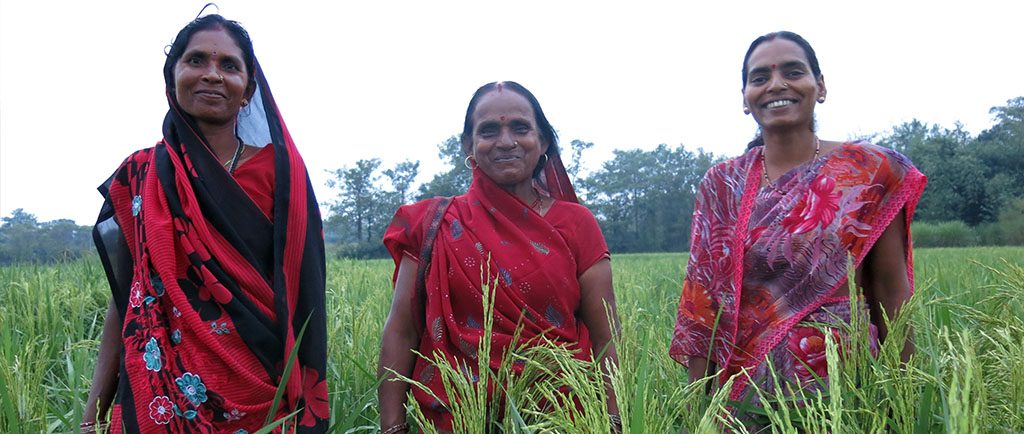CSISA-Trained Women Farmers Lead the Way for Agriculture in Bihar

On account of various social and cultural barriers prevalent in rural India, women farmers often lack access to even basic information and training on modern agricultural practices. In the eastern Indian state of Bihar, Cereal Systems Initiative for South Asia (CSISA) is working closely with women’s self-help groups (SHGs) to bridge this knowledge gap. According to the FAO State of Food and Agriculture 2010-11 Report, agricultural output in the developing world can, on average, be increased by 2.5 to 4 percent if women farmers had the same access to agricultural inputs and services as their male counterparts.
In the last two years, working through more than 300 SHGs, CSISA’s focused interventions have led to nearly 4,500 women farmers adopting new climate-resilient and sustainable agriculture practices and technologies. Geeta Devi from Bandra block in Muzaffarpur district, for example, adopted crop diversification by planting soybean on 0.03 hectares of land after harvesting her typically intercropped field of maize and potatoes. This new crop provided a yield of 1.8 tons per hectare providing Geeta Devi sustenance for her household and a profit of US$ 32 from selling the surplus harvest. Growing soybean is a viable solution to the state’s current drought-like conditions since it is a short-duration crop that requires less water. She shares, “This diversification helped improve my field’s productivity despite the unfavorable conditions. The additional income will help cover my household expenditure.” [Note: The term ‘Devi’ is a common salutation used when addressing women in Bihar and not a surname]
Another farmer from the same block, Rekha Devi, adopted timely sowing of wheat with zero tillage – the first woman in her village to do so. “Initially, my family members were opposed to the decision and some even stopped talking to me. But having seen the beautiful crop standing in our field they are all very proud of me,” she says. By practicing zero tillage, Rekha Devi’s wheat yield increased from 4.4 tons per hectare to 6.1 tons per hectare.
It is important to note that the majority of these women, or ‘Kisan Sakhis’ as they have come to be known, are small and marginal farmers. Even a marginal increase in productivity or decrease in cultivation costs can go a long way in improving their circumstances. “Armed with these new skills and information, we are recording savings on all fronts. But more importantly, our knowledge of zero tillage, timely sowing, new varieties and community nurseries have helped change perceptions about our identity in our community. We are now recognized as able and progressive farmers,” says Bholi Devi.
Sanjay Shah, son of Kisan Sakhi Ashrafi Devi from Bochaha block, shares, “With the training my mother has received from CSISA, she has enabled us to practice innovative and improved farming such as zero tillage wheat and mechanical transplanting of non-puddled rice. We were all naturally hesitant when she first told us about these technologies. But today, we are all glad we listened and happily follow her advice.” A comment that brings a proud smile to his mother’s face.
According to Pankaj Kumar, CIMMYT Scientist, “Through CSISA’s classroom training and hands-on support provided out in the fields, these women groups have not only been able to learn new cost-saving technologies but are now also aware of and better equipped to benefit from various government schemes and subsidy programs.” Kisan Sakhi Sheela Devi from Sakra block, for example, was awarded last year by the Indian Agriculture Research Institute (IARI) Regional Station in Pusa for her efforts to increase food productivity using better-bet agronomic practices.
This article is authored by Sugandha Munshi, Gender Specialist, IRRI.